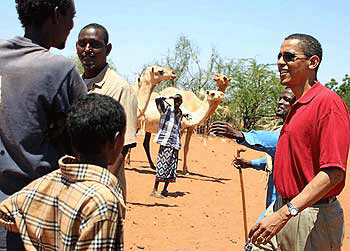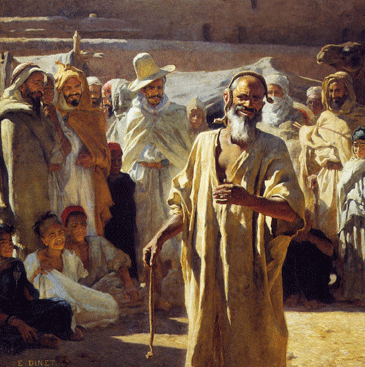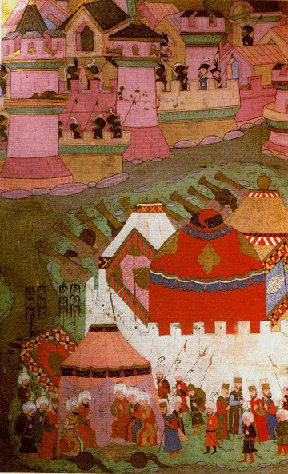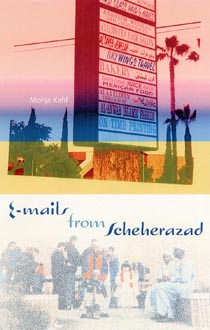
In Kenya on Sunday [August 27, 2006], US Senator Barack Obama on a visit to his late father’s homeland, is pictured with a camel at an animal market in Wajir, an area hit by a severe drought.
By Mark Levine, ALJAZEERA, June 25, 2008
As soon as Barack Obama rose to the top of the field of Democratic presidential contenders, he developed a “Muslim problem” based on false accusations that he is, or once was, a Muslim.
There is little doubt that these accusations will be raised again, however unfairly, when Obama squares off against John McCain, the Republican presidential candidate, in November’s election.
But if we were to assume that Obama overcomes this and other obstacles to win his historic bid for the White House, a far more serious Muslim problem awaits “President” Obama: A majority of the world’s 1.4 billion Muslims have an utter lack of trust in the US.
Senator Obama’s experience of living in a Muslim country (Indonesia, where he attended school during his childhood), along with his relative youthfulness and message of hope, have the potential to heal this rift, however.
He has the merits which can energise young Muslims in the same way he has inspired millions of young Americans. Continue reading Obama’s other Muslim problem






